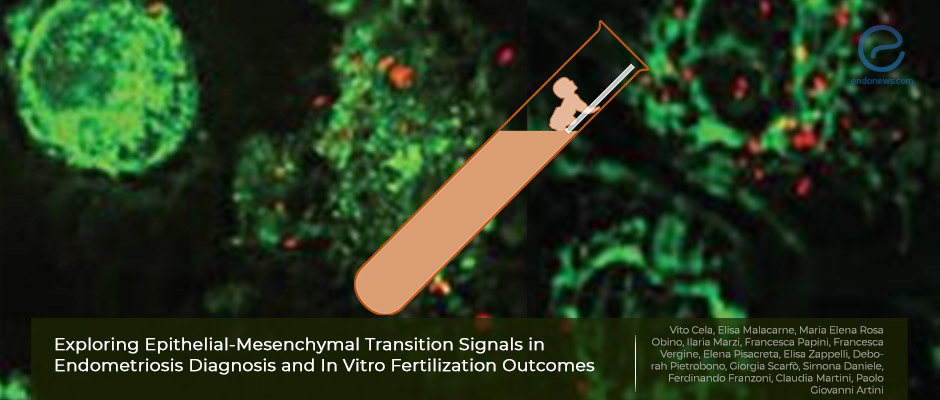The Epithelial–Mesenchymal Transition and IVF success
Dec 22, 2021
Mesenchymal callers alter oocyte and embryo quality
Key Points
Highlights:
- As the Epithelial-Mesenchymal Transition (EMT) is an inflammation-related process, some of its markers may be associated with IVF outcomes of patients with endometriosis.
- The molecules that could be played with, to improve embryo quality, are listed.
Importance:
- IL-8, IL-10, and E-cadherin as a predictive marker for IVF outcomes for good quality embryos, for women with endometriosis.
What's done here:
- 32 patients with endometriosis, and 32 controls with tubal/male factor infertility, enrolled in the study.
- All underwent personalized but GnRH antagonist protocol and were triggered by recombinant hCG.
- At the time of oocyte pick-up, a tube of blood sample and pure follicular fluid from one follicle were collected.
- EMT and inflammation markers were measured from both serum and follicular fluids.
Key Results:
- Serum levels of IL-6, IL-8, and IL-12 were higher in endometriosis patients while and IL-10 concentrations were lower.
- EMT markers such as N-cadherin, NF-kB, TGF, and HIF-1 are elevated in both serum and follicular fluid of patients with endometriosis.
- High IL-6. IL-8 and IL-12 levels were related to worse embryo quality and low numbers of MII mature embryos and also lesser numbers of oocytes collected.
- The NF-kB and E-cadherin levels also were related to embryo quality.
- Serum IL-8 and E-Cadherin, and FF IL-10, predicted positive values of the pregnancy test.
Limitations:
- While it is an interesting study to reveal possible markers for IVF outcomes the authors have not explained the mechanisms that EMT process interacts with oocyte and embryo quality and the hypothesis under the search for this topic.
Lay Summary
Endometriosis is a disease with lots of unknowns and one is that the reason for causing infertility. It is possible that a decrease in mitochondrial content may diminish oocyte quality in endometriosis. Furthermore, endometriosis alters the microenvironment of maturing oocytes that result in ovulatory dysfunction hence causing poor oocyte quality, diminished fertilization and implantation rates, low-grade embryos, underscoring the direct effect of endometriosis on the development of oocytes, embryos, and the receptivity of the endometrium.
In the study led by Dr. Paolo Artini, the authors questioned whether is it possible to predict IVF outcomes of endometriosis patients by checking follicular fluid and serum.
They have planned a study covering data from 64 women undergoing IVF procedure half of which were diagnosed with endometriosis and the other infertile half were related to tubal or male-factor. At the time of oocyte pick-up, a tube of blood sample and pure follicular fluid from one follicle have been collected, and inflammation markers have been measured.
The analyzed results revealed serum levels of IL-6, IL-8, and IL-12 were higher in endometriosis patients while and IL-10 concentrations were lower. EMT process markers such as N-cadherin, NF-kB, TGF, and HIF-1 were elevated in both serum and follicular fluid of patients with endometriosis.
High IL-6. IL-8 and IL-12 levels were related to worse embryo quality and low numbers of MII mature embryos and also lesser numbers of oocytes collected.
The NF-kB and E-cadherin levels also were related to embryo quality. Serum IL-8 and E-Cadherin, and follicular fluid IL-10, predicted positive values of the pregnancy test.
The findings, published in a recent issue of Biomedicines, opened an opportunity window for further research to explain the reason back to these alterations and create a tool to predict IVF outcomes of women before embryo transfer just by checking blood and follicular fluid.
Research Source: https://pubmed.ncbi.nlm.nih.gov/34829910/
mesenchymal transformation IVF success follicular fluid

